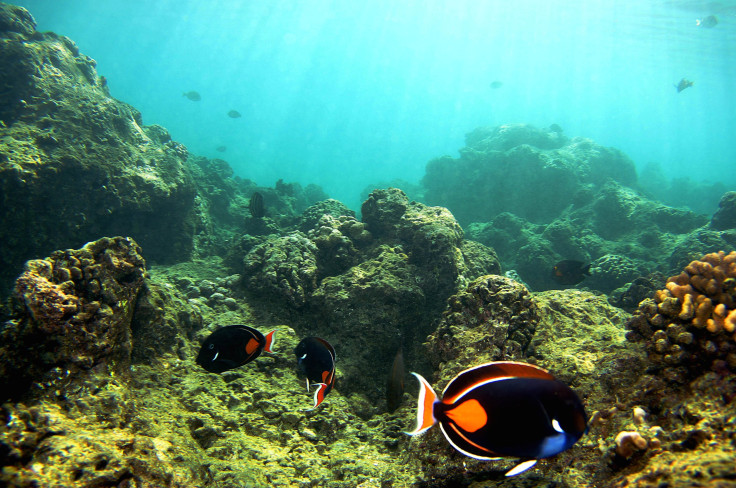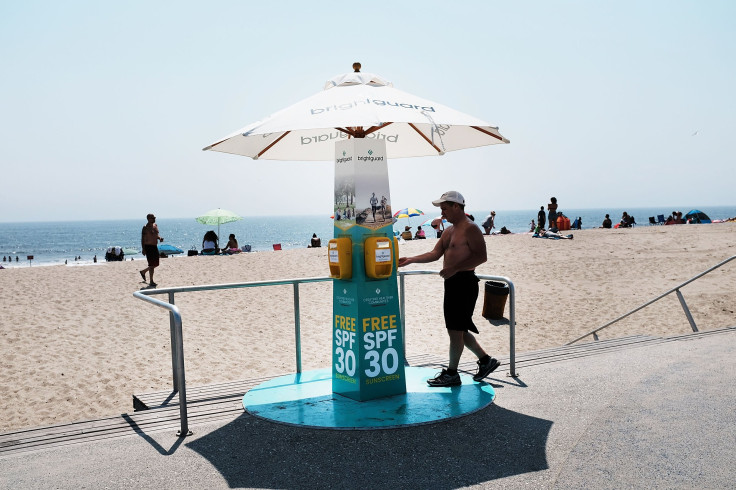Hawaii’s Coral Reefs, Marine Ecosystem May Soon Be Protected From Sunscreen Chemicals

Wear sunscreen, but only if they are the kind that don’t harm marine life, especially if you are going to be on the beach. And if you are in Hawaii, ecofriendly sunscreen is all you will be able to buy soon, if a new bill passed by the state’s lawmakers gets signed into law by Gov. David Ige.
Beginning Jan. 1, 2021, the proposed law “bans the sale, offer of sale, or distribution in the State of any sunscreen that contains oxybenzone or octinoxate, or both, without a prescription issued by a licensed healthcare provider to preserve marine ecosystems.” The bill, which was introduced by state Sen. Mike Gabbard on Jan. 19, was passed by Hawaiian lawmakers Tuesday.
Oxybenzone (also called benzophenone-3) damages the DNA of corals, leading to poor development of corals and reefs. It also causes bleaching of corals, as well as the development of a skeleton in juvenile corals, who, in the natural course of their lives, shouldn’t have a skeleton at all. Further, oxybenzone harms other fish and marine wildlife as well, including the embryos and sperm of fish and sea urchins.
The effects of octinoxate on corals and marine life is similar. These chemicals are present in over 3,500 popular sunscreen brands around the world.
“Amazingly, this is a first-in-the-world law. So, Hawaii is definitely on the cutting edge by banning these dangerous chemicals in sunscreens,” Gabbard told the Honolulu Star-Advertiser.
Hawaii has tried passing such a bill earlier as well, but twelve different bills were turned down before SB 2571 finally passed. Advocates of the bill said vested interests and lobbying from chemical companies producing these sunscreens were to blame for earlier bills being defeated.
Manufacturers of some popular sunscreen brands containing these chemicals, such as Coppertone (owned by Bayer, who got it when it bought out Merck’s health unit in 2014), said there were very few ingredients that were as effective as oxybenzone for the level of protection against ultraviolet radiation.

Some in the medical fraternity have also argued against the proposed ban, saying not wearing sunscreen was linked to increased rates of cancer, and that there wasn’t enough evidence to support the theory of these chemicals causing coral bleaching. But that evidence exists, in fact, in a 2015 study, for example, that found oxybenzone trapped young corals in their own skeletons, disabling them from dispersing, and also caused corals to bleach. Research for the study was undertaken in Hawaii, the U.S. Virgin Islands and Israel.
“Oxybenzone poses a hazard to coral reef conservation, and threatens the resiliency of coral reefs to climate change,” the researchers had concluded.
There are a number of coral-friendly products, however, that are available in the market with different levels of sun protection (including over SPF 50 that Bayer was referring to in its own defense). Some of these ecofriendly sunscreens, which cut out the most harmful ingredients for the environment, are listed on this page.
© Copyright IBTimes 2024. All rights reserved.




















